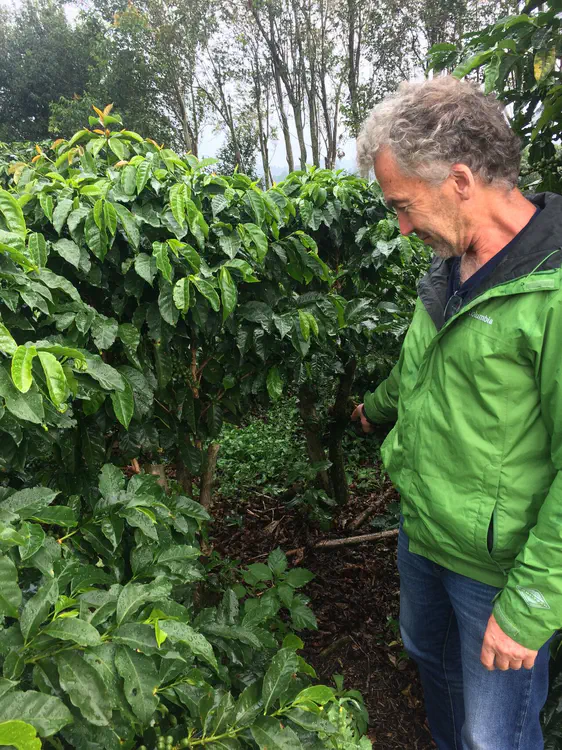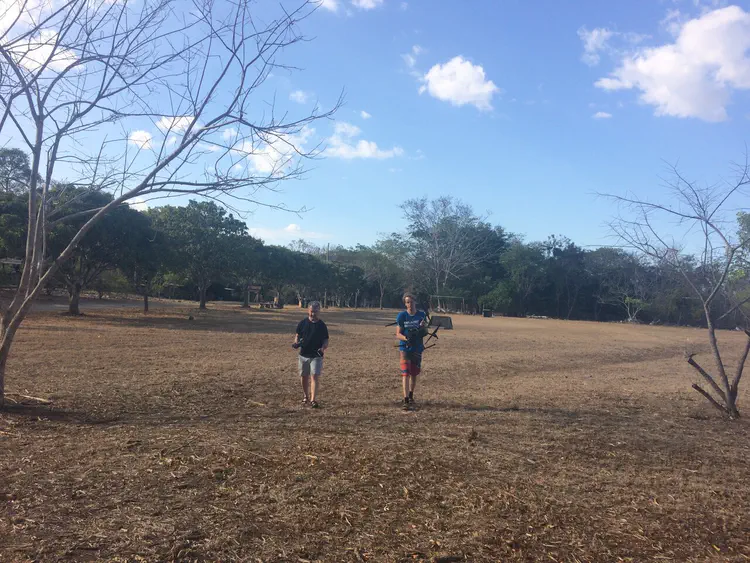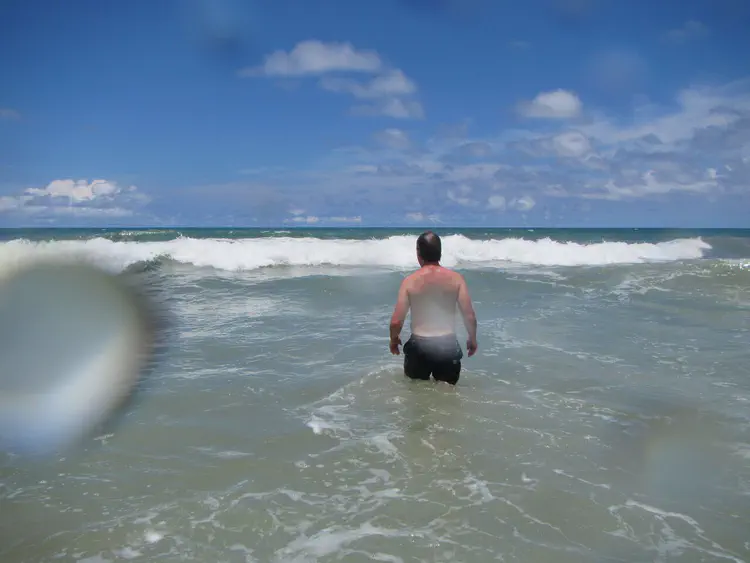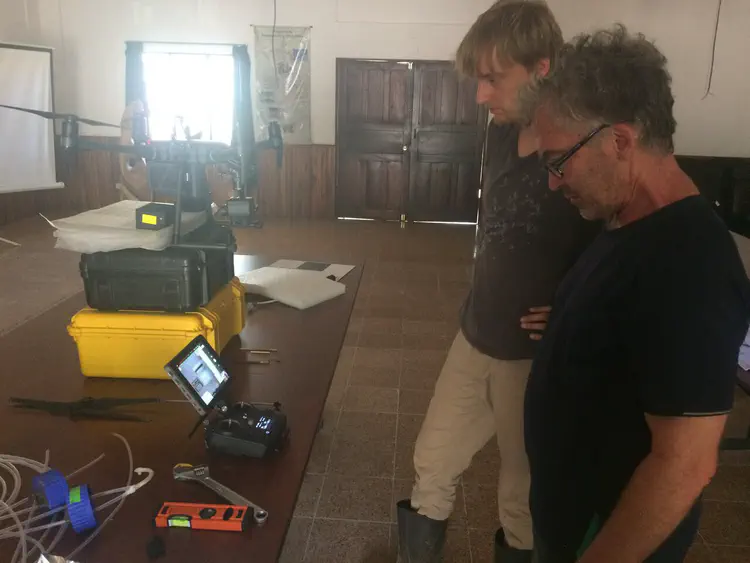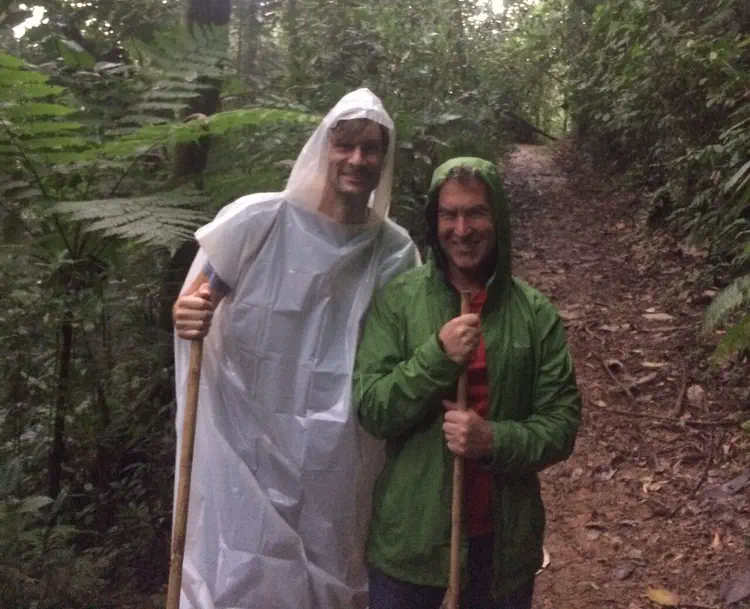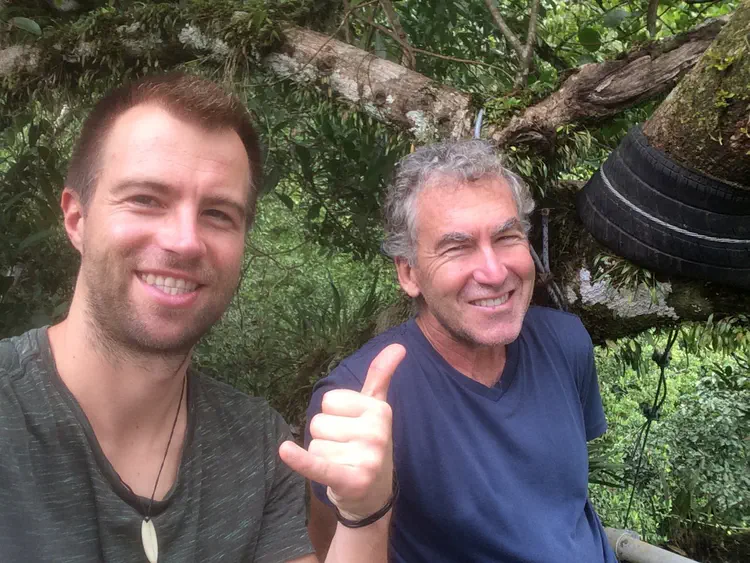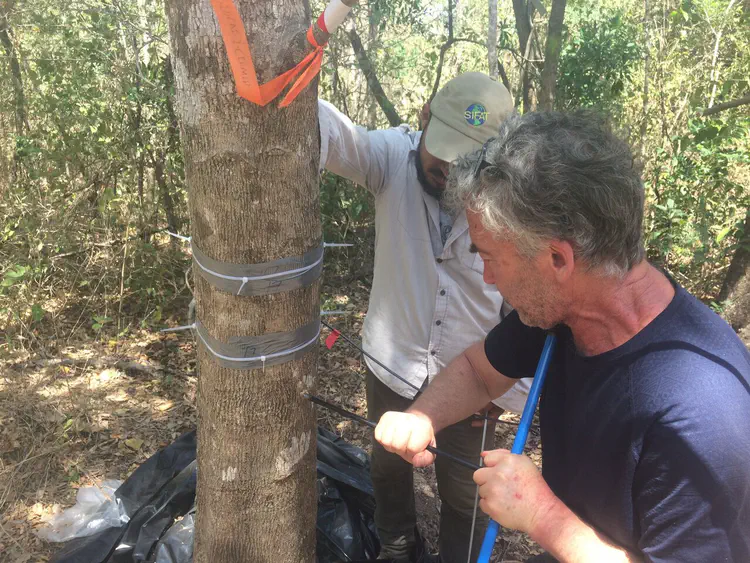A guest blog from John D. Marshall
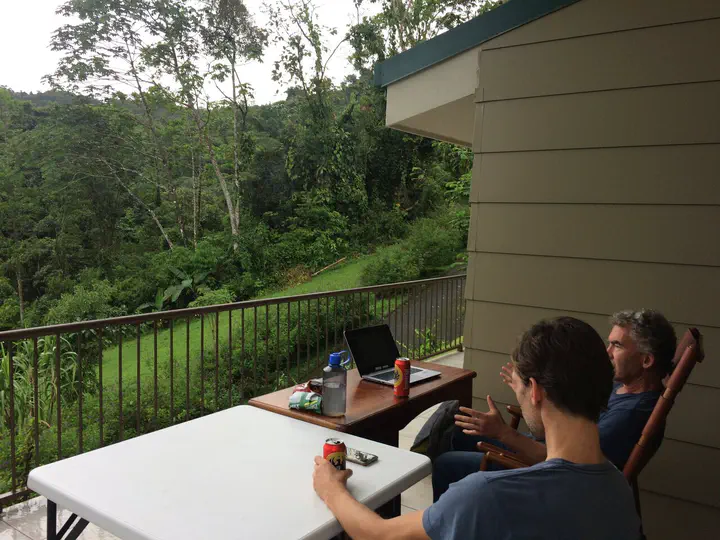 There are worse places to talk science, ha?! =) Profs John Marshall and Chris Birkel at the rainforest station.
There are worse places to talk science, ha?! =) Profs John Marshall and Chris Birkel at the rainforest station.John visited Isodrones as sort of a ‘Mentor’ in 2019 in Costa Rica. For me (Matthias), John really is an important scientific anchor and yes, I would call him a Mentor as well. His knowledge AND creativity are incredible, and I learn so much over every conversation we have! Read what he thinks of his experience with us here!
John on his trip with us to Costa Rica
I spent a couple of weeks at Horizontes with Mati and the group in February of 2019. What was that like for me? First, you have to know that I never expected to leave North America when I was young, even up to age 29, when I first went to Europe. The people I grew up with just didn’t do that. So, for example, I still love the food they bring you on planes, or at least I used to… and being in Costa Rica was an adventure.
Part of the adventure was the work. It was a bit like a project that Mati and Kathi and I worked together on in Sweden, in the summer of 2018. I guess you’ll hear more about that elsewhere on this site. The differences from Sweden were fun, though. There was Franklin, the cook, who kept making these delicious meals out of sort of simple ingredients, eaten in the cookhouse with the group.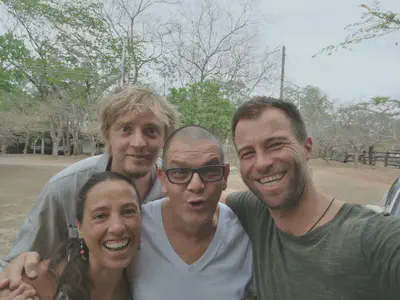
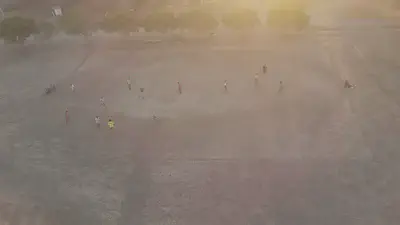
John on science life
If you’ve read the other posts on this site, you’ve seen that Mati and his crew are trying to balance their scientific work with the rest of their lives. That’s a rare skill and it’s worth talking about a bit more. Science is weird at the beginning. It can seem so rigid in its way of deciding whether your ideas make sense, and scientists sometimes get personal in their criticism of each other. There is a premium on intelligence and hard work, but also on having a thick skin. In spite of this, a good scientist is able to use their creativity to present ideas that nobody has ever had before. But considering how difficult it is, maybe it’s no surprise that some scientists struggle with social interactions. But not all. Some people are able to do science without having it become who they are. And those people are fun! With them you can have honest disagreements without anyone being hurt. And even if someone gets hurt a little, the richness of the parts of their lives reminds them of how little some of this matters. To be able to argue with all your heart, accept sometimes that you were wrong, and love the whole process—that’s a beautiful thing. And it’s worth trying to cultivate. Like Mati, I have tried to chill my ego with meditation. Running works better for me. A little oxygen deprivation does wonders for your ability to remember what’s important. Ideas are just ideas, but lactic acid is real! When I find myself upset by someone’s treatment of me (or my ideas!), a run is usually just the thing. Doing science lets you live with the best parts of being a little kid. You can follow your curiosity. You can read or discuss the latest interesting ideas that people are having. You can solve real problems. And you can think about stuff that nobody has ever thought about before. For me the creative thinking is most important, but for others it may be the problem-solving. Finally, science really depends on certain people. There’s a story about Bell Labs, the place where transistors (before microchips) were first developed. The managers were interested in how the most creative new ideas appeared. So they started interviewing their most successful people. They asked questions about work environment, habits, lifestyle, and training, but in the end they discovered that one trait was shared by all their most productive people: they all had the habit of eating lunch with a certain guy. He was no superstar himself, but, I wonder what was happening there! I like that story. I hope it’s true.
